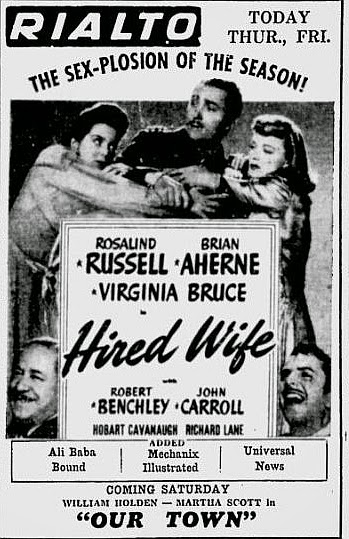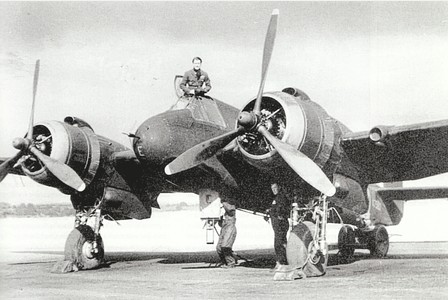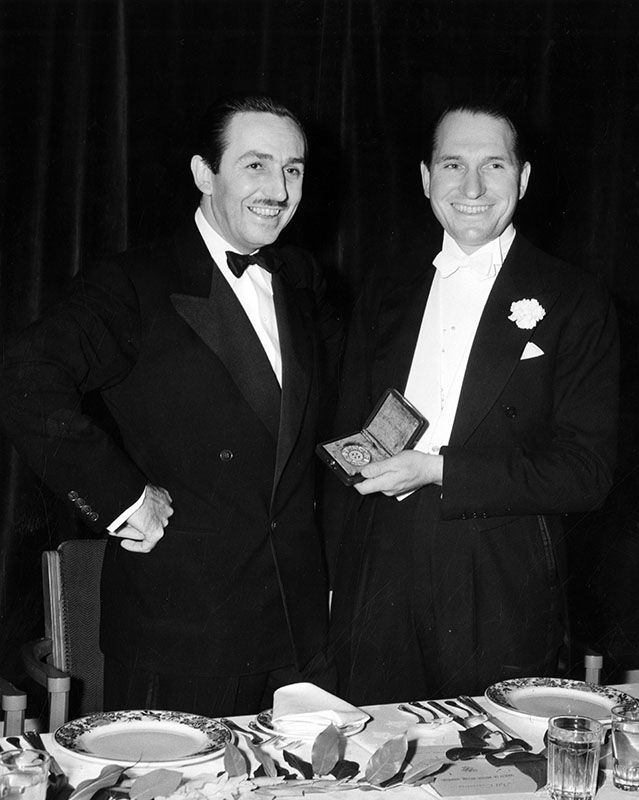Wednesday 30 October 1940
In the vital central sector in the Pindus Mountains, the Greek General Katsimitros determines to defend his line ahead of the critical road junction of Metsovo. He detaches some forces to cover his right flank at the Aoös River. The Italians struggle forward through the freshly fallen snow and icy rain and approach Konitsa as the Greek Pindos Detachment withdraws. During the day, the Greeks end their retreat and stabilize their line, with the 1st Infantry Division under Major-General Vasileios Vrachnos taking over local tactical control.
Turkey is proving decisive in the Greek Army's dispositions even though it technically is not involved in the war. Turkey threatens its neighbor to the north, Bulgaria, that it will join the Greek effort if the Bulgarians attack Greece, pursuant to the Balkan Pact of 1935. Knowing this, the Greeks are free to throw their entire army and any levees against the Italians on the Albanian front. This includes three divisions from the Bulgarian front and six reserve/cavalry divisions.
The Italians bomb Patras, the port of Athens, a handful of times.
The Soviet Union supports the Greeks and sends 134 fighter planes to their aid. The Greeks are particularly weak in modern aircraft, and the Soviet planes aren't much better, but the additional planes are very welcome.
The British land troops at Suda Bay on Crete.
 |
| As highlighted in this issue of the Yale News, Charles Lindbergh gives a speech at Yale on 30 October 1940 attacking US foreign policy. Yale is the birthplace of the "America First" antiwar movement. |
Things start late after the usual early-morning reconnaissance flights. German fighters escort fighter-bombers (Jabos) and some Junkers Ju 88s across the Thames Estuary around noontime. This leads to massive dogfights, but the German bombers get through to East Anglia, where they are met by more fighters.
A second wave crosses the Channel at around 15:30. This one crosses over at Dover and then heads down to the London area. Southeast London is lightly hit, while another group of bombers hits Harwich. Fighter Command is on the ball and turns away a lot of the raiders. Losses are light and fairly even in both of these waves, and the damage caused is light as well.
After dark, the London area bears the brunt of the bombing. RAF Duxford, Feltwell and Debden are attacked, but the poor weather hampers accuracy. Feltwell is the hardest hit, with one plane badly damaged, but overall the targets get off lightly. The Luftwaffe continues its nightly mining operations, this time off Harwich and, as usual, in the Thames Estuary.
Losses for the day are about 8 for the Luftwaffe (one Heinkel He 111 bomber, the rest fighters) and a handful for the RAF. As usual, the Luftwaffe does better in relation to the RAF when it keeps operations light and fluid, as today, rather than overbearing and ponderous, as in recent days. The RAF loses four pilots killed.
Several bomb disposal men receive the George Cross: Robert Selby Armitage, Herbert John Leslie Barefoot, Wilson Hodgson Charlton, and William Horace Taylor. Not to take anything away from any of these gentlemen, but it is becoming clear that the best ways to earn the George Cross are to work in a bomb disposal unit or be a Home Guardsman who evacuates people from burning buildings (and more likely than not succumbs themselves). This is somewhat at odds with the original purpose of the award, which ostensibly was to reward civilian heroism. Basically, the George Cross is simply becoming another military award for non-combat situations. And, yes, all of these recipients undoubtedly deserved every bit of their medals, as bomb disposal work is a deadly serious business.
To give a flavor of the situation at the time, Pilot Officer A.E. Davies of RAF No. 222 Squadron is shot down and killed over Sussex around noontime. His Spitfire, though, is not too badly damaged - Davies must have crash-landed it before he succumbed to his injuries - and someone else soon gets his plane to fly. Nothing terribly wrong with that, but it shows that the RAF treasures every plane and must use even a dead man's plane in later operations. It is unclear how the next pilot of that plane would have felt about being assigned the "death ship," and pilots can be a superstitious lot.
Adolf Galland of JG 26 gains his 50th victory, at this time second in the world to the 56 of Werner Molders.
James Lacey gets a victory and damages another Bf 109.
European Air Operations: RAF Bomber Command attacks Cherbourg during the day. After dark, it bombs several ports, including Emden, Flushing, and Antwerp. Coastal Command chips in with an attack on Ostend.
The Air Ministry authorizes area bombing, meaning unrestricted aerial warfare on civilian population centers. Heretofore, the attacks at least technically have targeted industrial or military installations. There is no question that this is amply justified by Luftwaffe attacks on British cities. However, this also undeniably represents yet another step lower into the savagery of unrestricted warfare. In practice, the bomber aim is so poor at this point that the bombers may as well have been engaging in area bombing all along, but now they can just target the centers of cities and not just airfields or power plants sited far from downtown.
The Kriegsmarine suffers a rare U-boat loss. U-32 (Oblt.z.S. Hans Jenisch) is on its ninth patrol and attacks 5372-ton freighter Balzac in the shipping lanes northwest of Ireland. The torpedo explodes prematurely, and the Balzac calls over some escorts from Convoy SC 8 dozens of kilometers away. The tables then are turned and the U-boat is attacked by destroyers HMS Harvester and Highlander. The depth charge attack forces the U-boat to surface, and the destroyers riddle it with gunfire. The U-boat is afloat long enough to enable the crew to escape and scuttle it. There are nine deaths, but 33 of the crew survive to become POWs - a relative rarity when U-boats are sunk in action. Jenisch - who has sunk 17 ships, including recently the 42k ton liner RMS Empress of Britain, for a total of 110,139 tons - survives and becomes an outspoken critic of the U-boat as an instrument of war. Goebbels' propaganda outlets, meanwhile, go on to announce his and U-32's glorious but completely fictional return to port.
Convoy SC 8 is nearing its destination in Great Britain when destroyer HMS Sturdy runs aground on the island of Tiree in the Inner Hebrides. The ship is lost and five crew perish when they try to swim ashore (it's always further than you think). They are buried at Soroby on the island.
A British freighter, the 5213-ton Simonburn, also runs aground at Rattray Head, Aberdeenshire and is lost. It appears everybody survived.
British 1381 ton coaster Alcora runs ashore and is wrecked near Rattray Head, Scotland. Rattray Head is a ship's graveyard, with numerous wrecks there that haven't even be identified.
French requisitioned gate vessel HMS Placidas Faroult runs ashore and is lost off Salcombe estuary, South Hams, Devon. The wreck has been only tentatively identified.
British 92-ton tug Seagem, a new ship built in 1939, goes missing and is presumed sunk around this date. There are no survivors to explain what happened, but a mine could have essentially blasted the tug apart. However, the weather might have been the cause, too.
A Focke Wulf Fw 200 Condor of the Luftwaffe (1,/KG 40) attacks Convoy SLS-51. It bombs and sinks 4202 ton Greek sugar freighter Victoria west of County Donegal, Ireland.
British 57-ton motor launch ML No. 109 (Lt A. Kirk RNR) hits a mine and sinks near the Chequer Shoal Buoy in the Humber. There are three deaths, including Captain Kirk.
Passenger liner Duke of York, later renamed HMS Duke of Wellington during the war apparently to avoid confusion with the battleship, collides with Icelandic (some sources say Irish) fishing trawler Bragi off Wyre Light, England. The 324-ton Bragi has no chance and sinks, apparently with no casualties.
Destroyer HMS Fearless collides with 1904-ton British freighter Lanark and is damaged in the bows.
Minesweeper HMS Leda collides with a freighter and is damaged lightly.
Convoy FN 323 departs from Southend, Convoy FS 323 departs from Methil, Convoy OG 45 departs from Gibraltar.
U-146 (Kapitänleutnant Eberhard Hoffmann) is commissioned.
Battle of the Mediterranean: Wing Commander J.R. O'Sullivan forms a fighter Squadron on Malta. It is to be based at Ta Qali, an airport that will be re-opened for the unit. Ta Qali is basically a junkyard now, used as a dumping ground for old vehicles such as buses and lorries. The airfield was left like this to obstruct an invasion attempt and will have to be cleared to become usable again.
Italian submarine Scire under command of Prince Borghese returns from its unsuccessful launch of manned torpedoes against the British fleet at Gibraltar.
Italian submarine Bragadino drops off mines near Navarino (Pylos), Greece.
Battle of the Pacific: Converted minelayer Passat continues laying mines in the Bass Strait, dropping 40 of them at the eastern entrance. The Pinguin also is laying mines off the coast of South Australia.
German Government: Adolf Hitler returns to Berlin in the evening. He orders General Ritter von Thoma, the head of a military mission to Rome/Libya, to report to him immediately on the status of the Italian position in North Africa. Based on this conversation, he cancels any plans to send Wehrmacht ground troops ("boots on the ground") to North Africa for the time being because:
- The Italians were adamantly opposed to a German presence there;
- Marshal Graziani had been all but rude to von Thoma;
- It would be difficult to supply troops across the Mediterranean.
 |
| Best's Apparel, Seattle, October 30, 1940. After shoe-store Nordstrom merged with Best's, it became Nordstrom-Best shoes and apparel. |
It is with honor and in order to maintain French unity, a unity which has lasted ten centuries, and in the framework of the constructive activity of the new European order that today I am embarking on the path of collaboration.This is a famous speech - an infamous speech - that is long remembered in France. In fact, it is remembered quite well at Petain's post-war trial. It would have helped his case if he had said something in this speech about not declaring war on Great Britain as Hitler wished, but for the time being he is going along to get along.
China: In the continuing Battle of South Kwangsi, the Chinese 35 Army Group occupies Nanning from the retreating Japanese.
American Homefront: Cole Porter musical Panama Hattie opens on Broadway, starring Ethel Merman, Arthur Treacher and Betty Hutton. It becomes his longest-running hit to date, running for 501 performances. Oddly enough, it doesn't feature any classic Porter songs. This musical begins a string of Broadway hits for Porter which he personally thinks are mediocre, but the audiences of the time love - and which now are largely forgotten because he was right, they were mediocre.
President Roosevelt, campaigning for his third term in Boston, promises:
I have said this before, but I shall say it again and again and again: Your boys are not going to be sent into any foreign wars.Future History: Charles Fox is born in New York City. He becomes a top - quite possibly the best - behind-the-scenes composer whose more recognized works include the theme music to ABC's Wide World of Sports ("Spanning the globe") and the original Monday Night Football, as well as his (and Norman Gimbel's) Grammy-winning song recorded separately by Roberta Flack and the Fugees, "Killing Me Softly With His Song." Fox also writes (with Gimbel) a trove of absolutely unforgettable television themes, including "Wonder Woman," "The Last American Hero," "Ready to Take a Chance Again" (for the movie "Foul Play"), "Happy Days," "Laverne and Shirley," "The Love Boat" - yes, he wrote the Love Boat theme with Paul Williams - and, well, too many more to list. Mr. Fox remains active and published his memoirs in 2010, "Killing Me Softly: My Life in Music." He is quite possibly the composer whose songs you know the best but whose name you have never heard. The man is a legend.
 |
| An ad in the 30 October 1940 Edmonton, Alberta paper. |
October 1940
October 2, 1940: Hitler's Polish Plans
October 3, 1940: British Cabinet Shakeup
October 4, 1940: Brenner Pass Meeting
October 5, 1940: Mussolini Alters Strategy
October 6, 1940: Iron Guard Marches
October 7, 1940: McCollum Memo
October 8, 1940: Germans in Romania
October 9, 1940: John Lennon Arrives
October 10, 1940: Führer-Sofortprogramm
October 11, 1940: E-Boats Attack!
October 12, 1940: Sealion Cancelled
October 13, 1940: New World Order
October 14, 1940: Balham Tragedy
October 15, 1940: Mussolini Targets Greece
October 16, 1940: Japanese Seek Oil
October 17, 1940: RAF Shakeup
October 18, 1940: Convoy SC-7 Catastrophe
October 19, 1940: Convoy HX-79 Catastrophe
October 20, 1940: Convoy OB-229 Disaster
October 21, 1940: This Evil Man Hitler
October 22, 1940: Aktion Wagner-Burckel
October 23, 1940: Hitler at Hendaye
October 24, 1940: Hitler and Petain
October 25, 1940: Petain Woos Churchill
October 26, 1940: Empress of Britain Attack
October 27, 1940: Greece Rejects Italian Demands
October 28, 1940: Oxi Day
October 29, 1940: US Draft Begins
October 30, 1940: RAF Area Bombing Authorized
October 31, 1940: End of Battle of Britain
2020


No comments:
Post a Comment